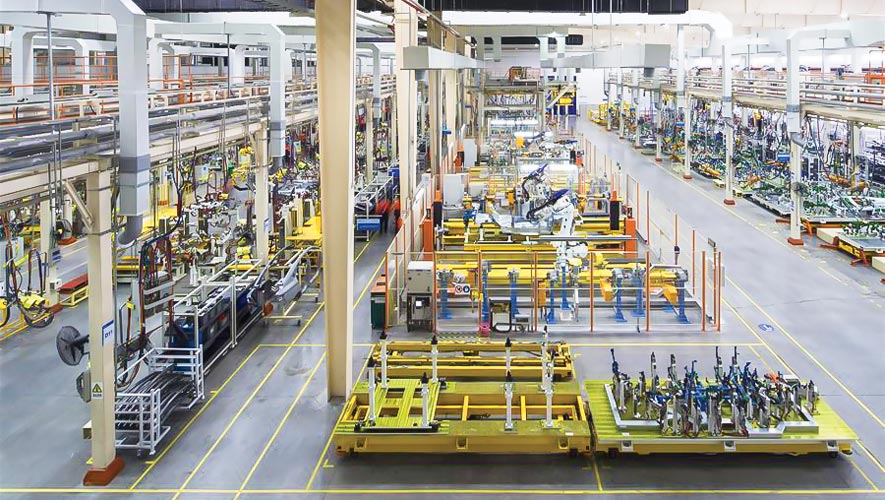Despite predictions of a property bubble burst, the market remains strong and resilient
For the latest Cambodian Business news, visit Khmer Times Business
There have been persistent speculations on an imminent crash of the property market in Phnom Penh the past few years.
Since the middle of 2016, certain quarters have been saying that the real estate sector is likely to fall under its own weight due to the alleged bloated market.
Presently, there is a property boom in Phnom Penh fuelled by massive investments from abroad, mostly China, creating a thin veil of anxiety among taxpayers.
The fears are further exacerbated by supply outpacing demand due to a surge in the supply of condominiums, apartments and housing estate units, known locally as “borey”.
It is undeniable that the growth in high-end condominium development by local and foreign developers has been glaring in the capital in past few years.
In 2018, 20 high-end condominium projects were completed, dumping 5,000 units onto the market. This year, the number is expected to rise to nearly 17,000 units from 43 condominium projects that include Prince Central Plaza, Lingnan Garden, Prince International Plaza, The Bridge, The Palm, Poly Mansion, Urban Village, Skylar Somerset and Pasteur 51. While the supply is massive, demand is slow to catch up.
Three years ago, Nigel Miranda, director of EPenh Co Ltd, predicted a drop in prices for 2017 to 2018 based on the predicament of rising property supply as of March 2016.
In an online article, Miranda wrote that the purchase price of apartment units in Phnom Penh will drop as much as 50 percent, and houses by 40 percent whereas apartment rental price would reduce 40 percent, houses (between 25 and 30 percent), commercial space (20 percent), and land leases by 15 percent.
But James Hodge, Cambodian associate director of US-based real estate and investment firm CBRE Group Inc, says that dire market predictions are an “overreaction”.
“You can only say that in hindsight, at a time when the market looks like it is heading towards significant change,” he says.
Hodge finds that the property market in Cambodia’s capital has been surprisingly robust.
“This is partly due to the amount of foreign capital flying in, both foreign investors buying residential properties and developers continuing their projects,” he stated.
At the same time, the market also benefits from growing income and purchasing power among locals, and mostly foreigners, particularly Chinese, relocating to the capital.
Crash not imminent but be cautious
And so, the property market remains intact, which makes one wonder if the predictions are exaggerations or a result of poor understanding of the market.
Country head for Knight Frank (Cambodia) Pte Ltd, Ross Wheble says a crash is not imminent because oversupply is limited to high-end condominium.
“The rest of the market is not impacted by oversupply,” he says.
He also does not foresee a price crash, rather a period of stagnation where prices would remain flat in the high-end condominium sector until domestic demand catches up.
Paul Ellender, manager of Freer Properties (Cambodia) Co Ltd, feels that the forecasts are meant to draw attention.
“I think the word ‘crash’ is too emotive. People love a bit of drama, and will use language so people take notice,” he opines.
The strength and resilience of Phnom Penh’s property market and Cambodia’s economy as a whole can be traced to its location and political stability.
“Phnom Penh is an amazing city and compared with other capital cities across Asia, it has a largely underdeveloped riverfront. It is well-positioned geographically because an hour’s flight in any direction would get a traveller to most Asean cities. The city also offers a great standard of living for many people,” he adds.
Ellender says Phnom Penh’s resilience can be attributed to its stable political environment.
The rule of the day is no longer about war or democracy, but about business.
“As Cambodia, China, Europe and the US continue positive trade relationships, there is no reason why an economy reliant on real estate and construction can’t continue,” he adds.
However, Ellender cautions that stakeholders should not be complacent. Cambodia should start preparing for the inevitable slowdown of the construction industry.
“It needs to inspire the growth of other homegrown industries, focus on improving people’s technical skills, and build a robust education system that is on par with the world,” he says




